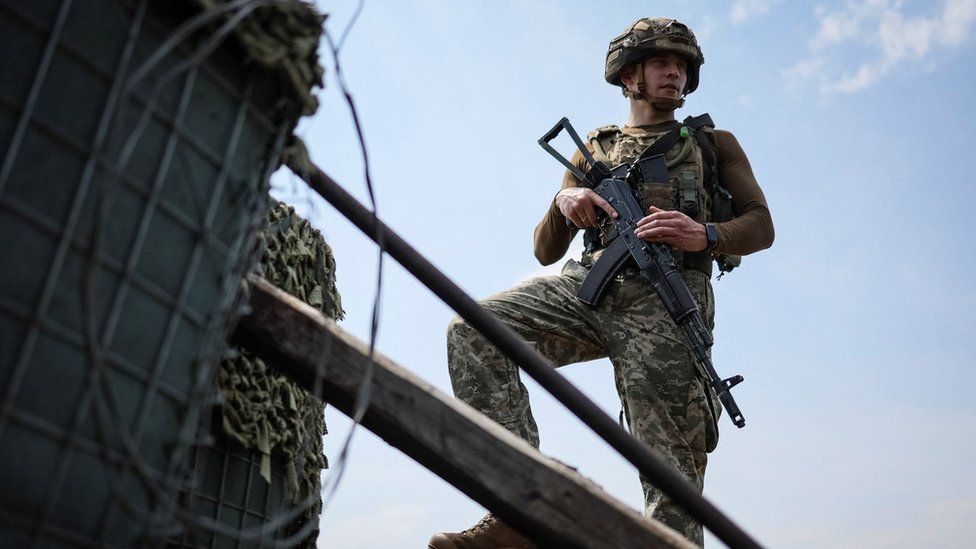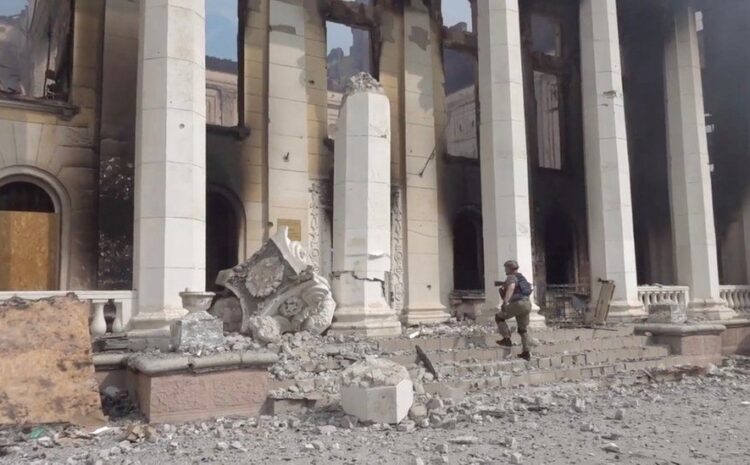
IMAGE SOURCE, NATIONAL POLICE OF UKRAINE/HANDOUT VIA REUTERS Image caption, A Ukrainian police officer inspects damaged remains of a student centre in Lysychansk destroyed in Russian shelling
By Leo Sands
BBC News
Both sides fought for the city in street-by-street battles on Monday as artillery shells rained from above.
The intensity of fighting there and in nearby Lysychansk has made them both “dead cities,” Mr Zelensky said.
If captured, the two strategic targets would deliver Russian forces the entire Luhansk region in Ukraine’s east.
“We’re holding out” in Severodonetsk, Mr Zelensky told reporters in Kyiv on Monday, and have “every chance” of fighting back.
But the Ukrainian president added that defending forces there were outnumbered: “There are more of them and they are stronger,” he said of the Russian side.
He said he was confident that Ukraine had “enough forces and means” to recapture the city in full.
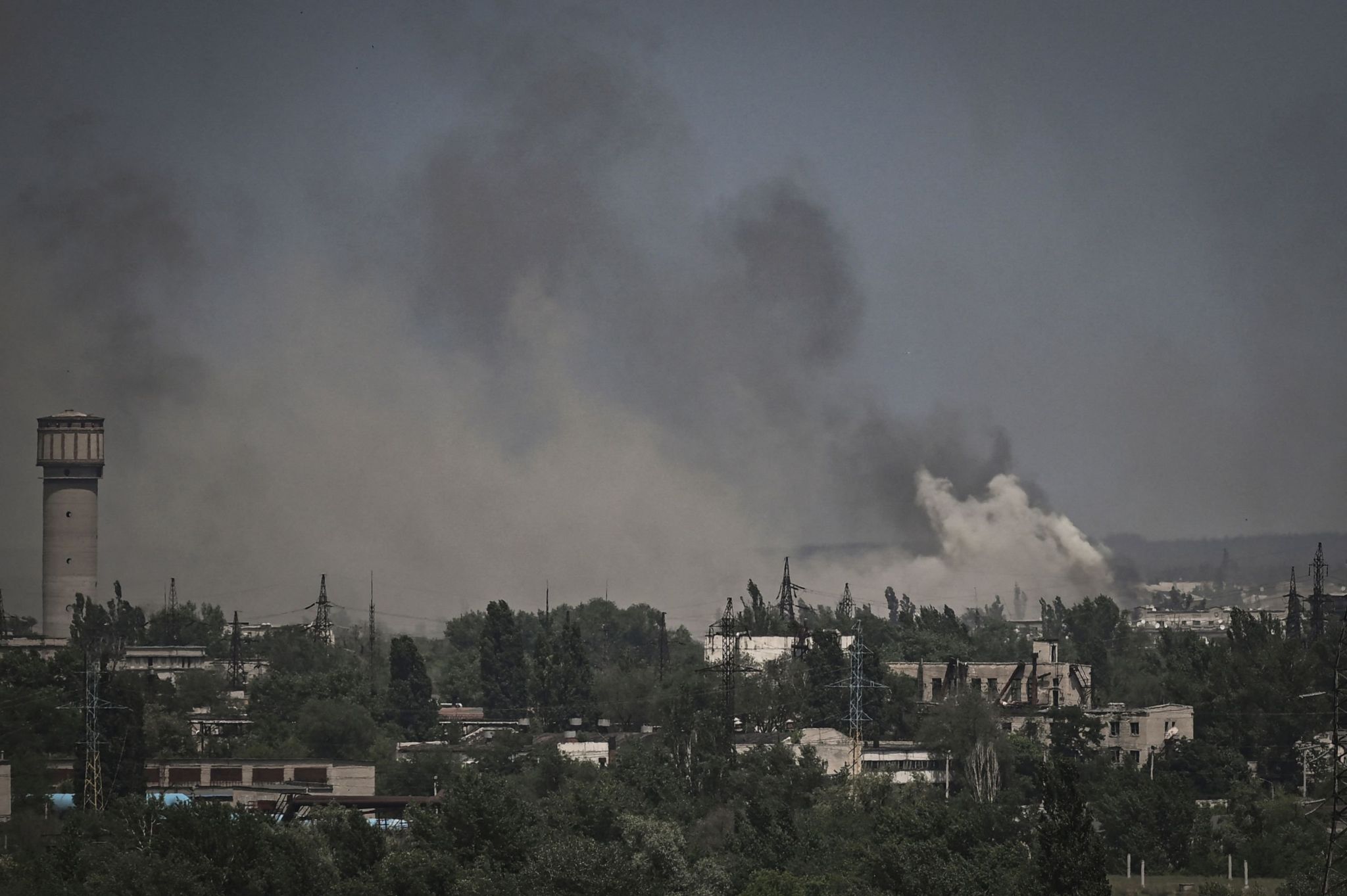 IMAGE SOURCE,GETTY IMAGES
IMAGE SOURCE,GETTY IMAGESEarlier today, Ukraine’s top military intelligence chief said the region surrounding the eastern city was turning into the “hottest” area of the entire conflict.
“Our defenders managed to undertake a counter-attack for a certain time; they liberated almost half of the city,” Luhansk regional governor Serhiy Haidai told local television on Monday morning. “But now the situation has worsened a little for us again,” he said.
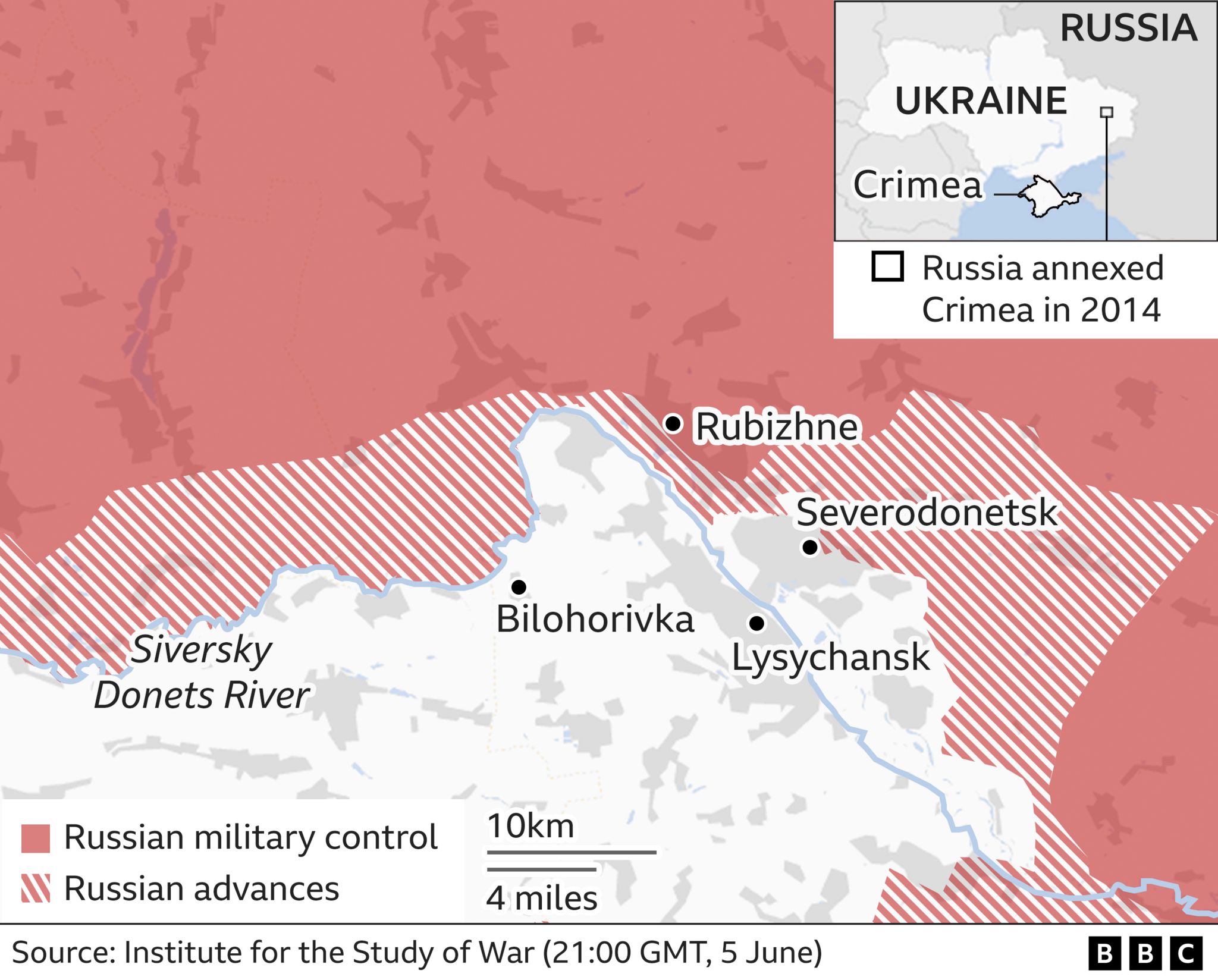
Artillery strikes have also intensified on neighbouring Lysychansk, which yesterday was visited by Mr Zelensky as part of a tour of the eastern front line.
“They shoot here endlessly… It’s a horror show,” the 67-year-old told AFP news agency.
Further south in Mariupol, which was captured by Russia in May after a months-long siege, Mr Zelensky said that more than 2,500 of the city’s final defenders were now being held captive by Russia as prisoners of war.
Mr Zelensky said the Ukrainian servicemen, including many who had been holed up in the Azovstal plant, are “in the hands of the Russian Federation” and demanded their return, Interfax news agency reports.
Many of the site’s defenders did not survive the siege. On Monday the Associated Press reported that dozens of corpses of Azovstal defenders had now been returned to Kyiv where they are undergoing DNA testing to be identified.
Since Mariupol’s fall last month Ukrainian officials have been warning about a burgeoning humanitarian crisis for civilians still living in the city, compounded by severe shortages of food and water.
“We are seeing the city get closed off” said Petro Andryushchenko, who is an adviser to the city’s mayor, to United News TV.
“The word ‘cholera’ is being mentioned inside the city, among occupying authorities and their handlers,” he added.
The BBC has not been able to independently verify this claim.
In a separate news conference, Ukraine’s top-ranking sanitary doctor warned that the risk of disease in Mariupol would increase as temperatures rose over the summer.
“We frequently receive information about burial sites found in inappropriate locations, which can lead to water contamination,” Dr Ilhor Kuzin said, according to online site Ukrainska Pravda.
“People who live in such places have to be particularly careful when using water from wells and water mains; such water must undergo thermal treatment.”

War in Ukraine: More coverage
- WHAT NEXT?: Five ways Russia’s war in Ukraine may play out
- WEAPONS: UK to send first long-range missiles to Ukraine
- FRONT LINE: The Russian soldiers refusing to fight in Ukraine
- READ MORE: Full coverage of the crisis

-
UK to send first long-range missiles to Ukraine
13 hours ago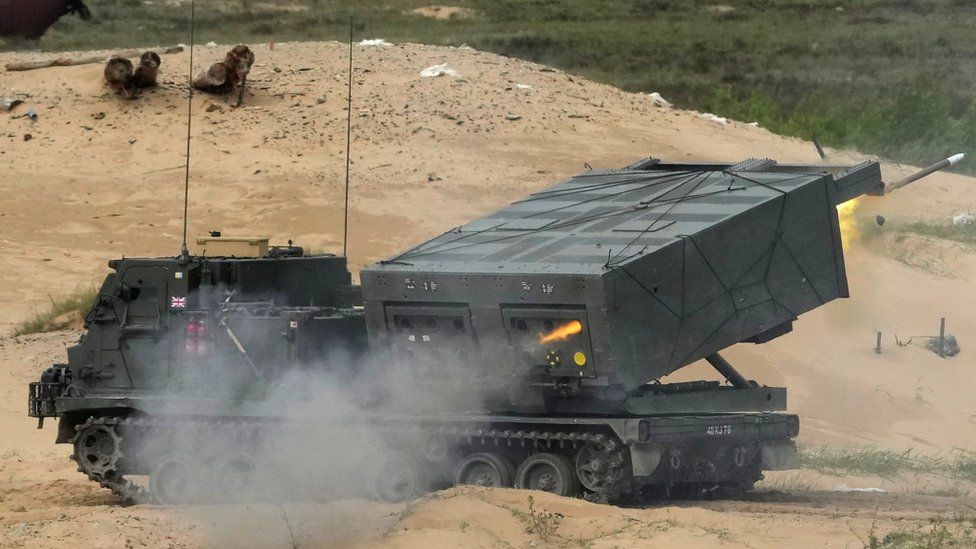
-
Russian general killed in Donbas fighting – reports
5 hours ago
-
Putin warns Ukraine over Western long-range weapons
19 hours ago